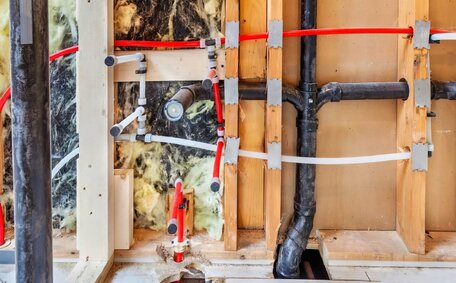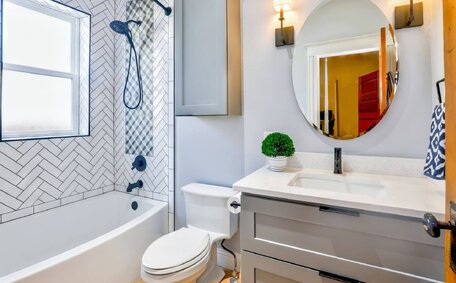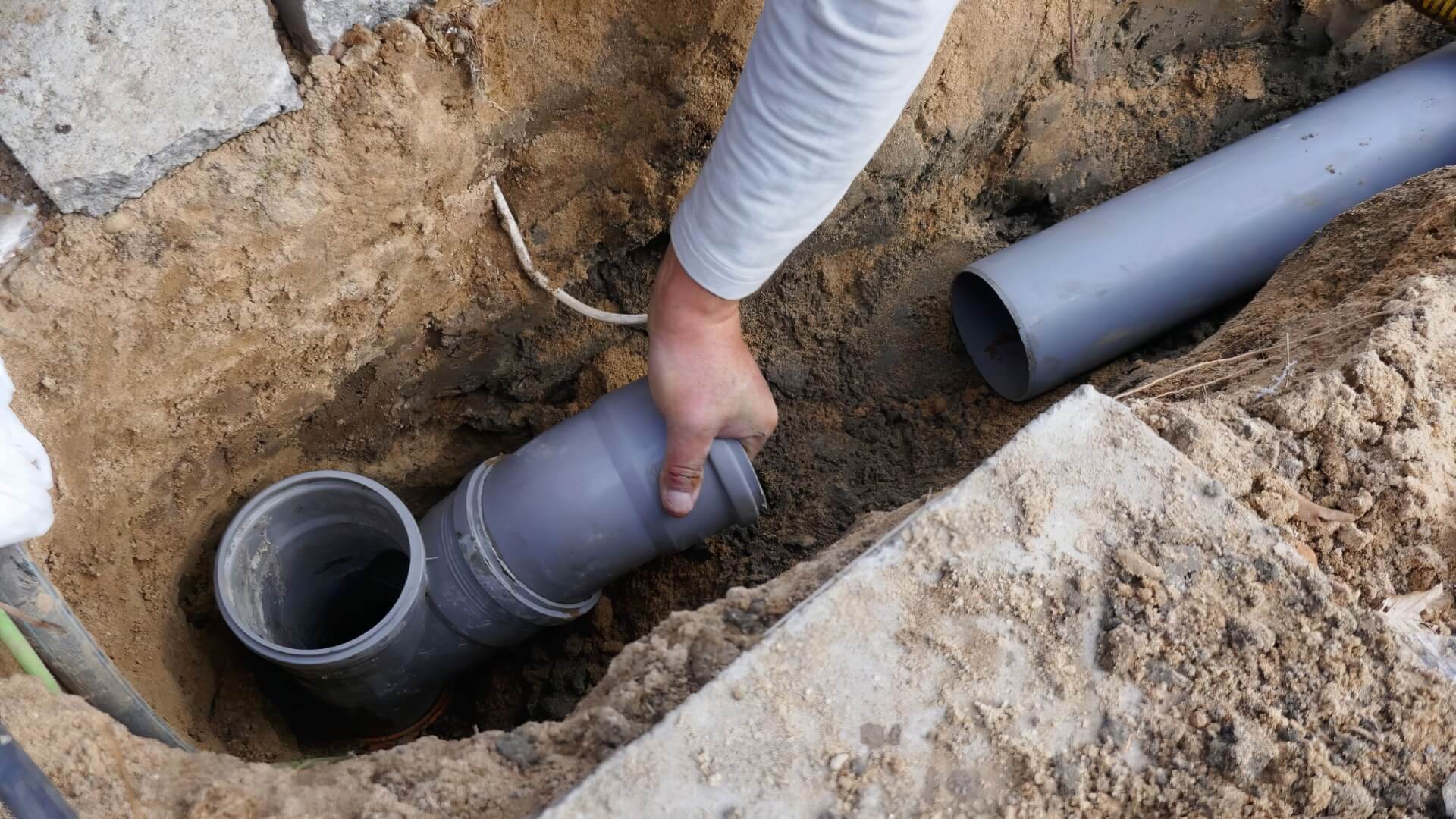Deciding whether to tackle home repairs yourself or call in a professional is a dilemma many homeowners face, especially during emergencies. When something goes wrong in your home, your first instinct may be to try fixing it yourself. However, some repairs are best left to qualified technicians to ensure they are addressed properly and safely.
In emergency scenarios, quickly restoring safe and healthy conditions is paramount. DIY repairs can seem like an affordable and convenient option but they also carry risks if key factors are not carefully weighed. This article provides guidance on when it’s advisable to opt for professional services versus DIY in order to make the best decision for your unique situation.
Assess if You Have the Skills for the Repair
An honest assessment of your plumbing skills and knowledge is crucial when deciding between DIY and professional repairs. Electrical work results in about 50,000 injuries treated in emergency rooms each year according to the Electrical Safety Foundation International, illustrating the dangers of tackling complex jobs without proper skills.
Consider the following when evaluating if you can safely and effectively complete the repair yourself:
- Do you fully understand the root cause of the problem? Diagnosing issues correctly is key.
- Are you familiar with the systems and parts involved in the repair? Intimate knowledge is important.
- Do you have experience doing similar repairs successfully?
- Do you own the necessary tools and protective equipment?
- Are you able to follow technical instructions and codes?
- Are you prepared to invest the time required, including potential trial and error?
- Are you willing to assume legal liability for the work?
Be honest about your DIY plumbing capabilities. A seemingly simple task like fixing a leaky faucet can turn complex quickly. When in doubt, calling a professional plumber is the best way to avoid injury, unnecessary damage, code violations and other issues. They have the skills and training to solve problems correctly and safely the first time. Protect your health by getting qualified help when needed.
Evaluate the Complexity and Safety Risks
Any DIY repair project carries inherent safety risks that must be carefully evaluated. Consumer Product Safety Commission, there are around 234,000 ladder-related injuries requiring emergency room visits each year. This eye-opening statistic illustrates how seemingly simple tasks can jeopardise your health and wellbeing if proper precautions aren’t taken.
According to the U.S.
When assessing a repair’s complexity, consider factors like:
- The systems, tools and materials involved
- Number of steps required
- Precision needed in measurements/cuts
- Amount of physical strength and stamina needed
- Electrical/gas risks if improper shutoffs occur
Be brutally honest about your capabilities. Jobs requiring climbing ladders, lifting heavy equipment, handling hazardous materials or performing precision work at height are often best left to qualified technicians. They have specialised training to handle risky situations safely.
Likewise, complex electrical, gas and plumbing repairs should be trusted to licenced professionals. Attempting to fix issues beyond your skill level often results in subpar work needing costly corrections later. Worse yet, it can cause severe property damage or physical harm.
If you have any doubt about safely performing a challenging repair yourself, call a professional. They can assess the situation and risks for you. Protecting your home while preserving your mental and physical health is always the top priority.
Consider the Costs of DIY vs Professional
When deciding between DIY and professional repairs, the costs involved should be carefully weighed. At first glance, doing it yourself seems cheaper. However, this route can ultimately cost more when factoring in expenses like:
- Tools and materials - Quality parts and tools needed to do the job properly often add up.
- Wasted supplies - Inexperience leads to wasted material from mistakes.
- Time invested - Repairs take longer without pro skills, eating up precious personal hours.
- Injuries - Medical bills from accidents caused by lack of expertise.
- Property damage - DIY errors can lead to costly damage needing a professional to fix.
- Repeat repairs - Lack of knowledge results in shoddy work needing repeated fixes.
- Code violations - Improper work not up to code may lead to municipal fines.
Hiring local professional plumbers may cost more upfront. However, their expertise allows them to complete the job quicker, within code regulations, and with warrantied workmanship. This saves money in the long run by preventing wasted time and materials, injuries, damage, and repeat repairs down the road.
Professionals also have access to quality parts at discounted rates that DIYers may not. And their efficiency saves you time that can be spent on other priorities. When faced with a challenging repair, get a quote from qualified local technicians before deciding.
Their services are often more affordable than expected, especially factoring in long-term costs avoided by proper work the first time.
Think About Insurance and Warranties
When tackling repairs yourself, it’s crucial to review how it may impact insurance policies and product warranties. Most warranties state that only authorised professionals should carry out service to keep coverage valid. DIY repairs often void protections, meaning future issues wouldn’t be covered.
Your home or business insurance may refuse to pay claims if damage results from unlicensed work. Liability risks also increase dramatically without proper credentials. If an accident occurs due to improper repairs, you could be sued for injuries or damages.
Hiring licenced professionals like plumbers protects you by ensuring work complies with local building codes and manufacturers’ requirements. Their expertise preserves warranties while reducing risks that could lead to denied insurance claims. For coverage and liability purposes, it’s safest to employ tradespeople certified to provide insured and warranted repairs whenever possible.
Know When to Call a Professional
Although DIY repairs may seem convenient and affordable up front, certain situations clearly warrant calling in a licenced professional right away:
- Electrical issues - Faulty wiring can cause fires and electrocution if improperly handled. Leave it to a licenced electrician.
- Gas leaks - Gas line leaks are extremely hazardous. Immediately evacuate and call the gas company or fire department.
- Major appliance repairs - Refrigerators, HVAC systems, water heaters, etc. require proper diagnostics and expertise to fix correctly.
- Roof damage - Cracked, leaking roofs demand professional assessment and repairs to prevent severe water damage.
- Demolition - Safely removing walls, cabinets or load-bearing structures is best left to qualified contractors.
In addition, call a professional plumber for:
- Frozen or burst pipes
- Major clogs or sewer line backups
- Leaking water supply lines
- No hot water
- Faucet, toilet or bath/shower plumbing issues
- Sewage odours
- Low water pressure
- Leaking drains or toilets
Trying to fix these complex plumbing problems without proper training will likely fail, make the issue worse and put your safety at risk. Professional plumbers have the expertise to quickly diagnose problems and make repairs effectively to restore your home’s plumbing and sanitation.
High-Risk Repairs Best Left to Experts
Certain high-risk home repairs virtually always warrant calling in a professional rather than attempting a DIY job. Hot water systems involve complicated gas or electrical lines that can leak and cause explosions or electrocution if improperly handled. Trying to repair issues like faulty pressure relief valves, corroded pipes or malfunctioning elements yourself is extremely dangerous.
Leave it to qualified plumbers to safely diagnose and fix hot water system problems.
Likewise, repairs involving damaged or leaking gas pipes should never be tried without professional assistance. Ruptured gas lines can cause deadly leaks, fires and explosions. Likewise, repairs involving damaged or leaking gas pipes should never be tried without professional assistance.
Let specially trained technicians stop the leak and ensure the system is intact before the property is safe to re-enter.
Faulty electrical wiring also poses critical safety risks.
Issues like short circuits or overloaded circuits can spark electrical fires capable of engulfing your home in minutes. Only licenced electricians have the expertise to thoroughly assess wiring issues and make repairs up to code. DIY electrical work often makes problems worse while creating an electrocution or fire hazard.
Attempting roof repairs yourself can also have disastrous consequences if damage is severe. Leaks should be fixed by a professional roofer to prevent mould and water damage.
Weight-bearing structural issues demand assessment by a structural engineer. Don’t risk falling off steep pitches either.
In emergency plumbing scenarios like burst pipes, flooded basements or sewage backups, calling in professionals for immediate response also takes priority over DIY attempts. Their fast action helps secure property, contain damage and restore safe conditions.
Essentially, high-risk repairs involving complicated systems, gas lines, electrical wiring, load-bearing structures or hazardous spills often warrant trusting certified experts, not DIY solutions. Their technical knowledge, protective gear and risk training keeps everyone safe while properly restoring your home’s integrity.
Basic Repairs You Can Likely DIY
While more complex home repairs require professional expertise, some basic fixes fall within the DIY range if you exercise due caution and preparation. Doing these straightforward tasks yourself can save money and give you a sense of pride and accomplishment.
Here are some common DIY repairs an average homeowner could likely manage with proper research and care:
- Tightening loose faucet handles or showerheads
- Replacing worn sink or toilet flappers causing leaks
- Reseating loose toilets or tightening tank bolts
- Patching minor holes or dents in drywall
- Replacing light switches, outlets and cover plates
- Snaking sink, tub or toilet drains to clear clogs
- Replacing furnace filters and clearing debris from vents
- Sealing minor roof leaks with elastomeric sealant
- Fixing stuck windows, squeaky hinges or jamming doors
When attempting DIY repairs, safety should always come first. Turn off water and power supplies when needed, work carefully on ladders or in tight spaces, and wear protective gear like gloves and goggles. Also, research building codes to ensure any work complies locally.
Carefully review manufacturer instructions when replacing any parts too. They can often quickly finish the task you started safely and correctly. If you get in over your head, stop work and call a professional.
Home repairs always require diligence and care, but you can likely DIY many basic fixes with proper preparation and caution.






